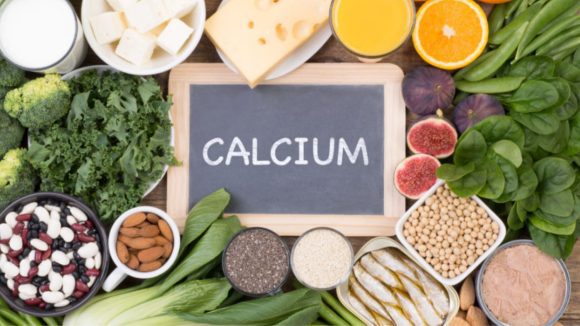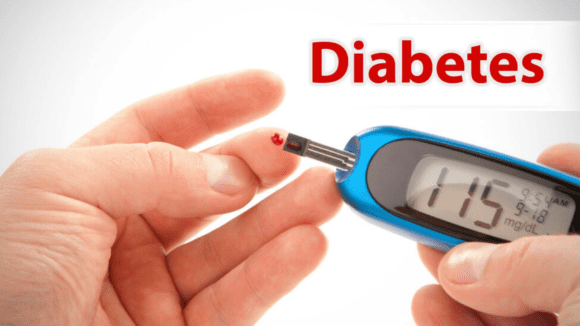
What is calcium ?
Calcium is very important for bones. Many people take different brands of calcium tablets to compensate for calcium deficiency. You should not take calcium pills if you have a little pain in your body, hands and feet. Because there is a lot of calcium in the daily food which fills the deficiency of calcium in the body.
Also Read: What is allergy ? Ways to get rid of skin allergies
Calcium helps strengthen teeth and bones and works to prevent decay. Lack of this can cause osteoporosis and calcium is also needed to keep muscles, heart rate and nerves strong.
What is calcium?
The chemical symbol abbreviation for calcium is Ca which is an elemental substance with atomic number 20 and is an alkali metal. As a result, calcium is a very active metal, forming a dark oxide-nitride layer when exposed to air or air. Calcium shares most of its structural and chemical properties with the heavier and similar elements barium and strontium.
Calcium is the fifth most abundant element in the Earth’s crust in terms of atoms. At the same time, calcium is the third most abundant metal in the world. That is, it ranks after aluminum and iron. The most abundant calcium compound on earth is calcium carbonate, better known as limestone.
What is the role of calcium in the body?
Calcium strengthens the bones and teeth in the body and helps to clot the blood if it is cut anywhere in the body. The main sources of calcium are green vegetables, nuts, yogurt etc. Calcium helps in body development and muscle building and the importance of calcium in body building is immense. Again, calcium helps in the release of various hormones in addition to the exchange of signals in the nervous system.
If this micronutrient is sufficient in the diet, it works to prevent osteoporosis, colon cancer and hypertension in women after menopause.
Generally, the body’s demand for calcium increases with age. In particular, malnutrition, lack of vitamin D, lack of calcium in food, lack of absorption of calcium, and hormonal problems, and after menopause in women, calcium stores in the body’s bones decrease and the body’s bones become thin and brittle. Sometimes kidney problems also cause calcium depletion.
The role of calcium is discussed below
- Helps prevent blood clotting.
- Calcium is more important for keeping muscles fit.
- Calcium is needed for blood circulation in the body.
- Calcium plays an important role in maintaining weight balance.
- Helps keep heart rate normal.
- Deficiency of calcium in the body causes joint pain in knees and joints.
- Helps activate other chemicals and hormones.
- Calcium is very useful in preventing various types of pregnancy risks.
A lack of calcium in the body can cause various problems and harm the body. The problems that can occur due to its deficiency are given below.
Bone density decreases
As we age, the body’s calcium stores in bones decrease. This results in decreased calcium concentration in the bones and osteoporosis, or small holes in the bones, resulting in brittle bones.
Low immunity
Calcium increases the immune system of the body. Calcium deficiency reduces the ability to fight pathogens or germs.
Muscle contractions
If after drinking sufficient amount of water and despite the normal level of hemoglobin in the body, regular muscle contractions, i.e. spasms occur, then it should be understood that the body is deficient in calcium.
Abnormal heartbeat
Calcium is very important for the proper functioning of the heart. This is because when calcium is low, the heart beats abnormally and it helps the heart pump blood.
Neurological problems
If there is a deficiency of calcium, various types of neurological problems appear. For example, carpal spasms, twitching of the muscles around the mouth and sudden bending of the arm when taking the patient’s blood pressure, can also cause serious problems called hypocalcemia tetany.
How much calcium is needed?
A healthy normal adult needs about 1000 mg of calcium per day. Calcium deficiency can lead to osteoporosis.
About 99% of the calcium in the human body is in the teeth and bones. Calcium is essential for bone growth, development and maintenance. As newborns grow, calcium plays an important role in their bone growth. Women who have already experienced menopause are likely to lose bone density at a higher rate than men or younger adults. They are at the highest risk of developing osteoporosis and doctors recommend calcium intake to patients suffering from such problems.
An adult should consume 1000 mg of calcium per day. At least 1200 mg of calcium per day is needed for pregnant and lactating women who are older or over 50 years of age. You can also take vitamin D, as it helps the body absorb calcium. However, vitamin D is obtained from morning sunlight.
Foods rich in calcium
So that the body does not lack calcium, you must eat enough food. Eating foods rich in calcium is necessary to keep the body healthy. Most of the people are very careless about bone care and coffee, tea, salt and soft drink consumption habits, animal protein or excess protein cause a lot of damage to bones. But there are many foods that can help prevent bone loss and make bones strong and strong.
- Sour fruits like oranges, limes are very beneficial for bones and lemons contain citric acid and vitamin C which helps in calcium deficiency.
- Nuts contain a lot of calcium, which helps to fill the calcium deficiency in the body quickly.
- Consuming papaya regularly fills up calcium deficiency and 50 grams of papaya contains about 172 mg of calcium. So it is necessary to eat regularly.
Broccoli vegetable is rich in calcium, which helps in calcium deficiency in the body and helps in strengthening bones. - Soybean oil also fills calcium deficiency and about 100 grams of soybeans contain 175 mg of calcium.
What are calcium containing foods?
Green vegetables contain a lot of calcium, which is very beneficial for the body. Green vegetables like mint leaves, fenugreek and spinach contain vitamins, calcium along with iron. Lemons, lentils, beans, chickpeas, soybeans etc. contain a large amount of calcium.
It is also high in leafy vegetables. Cabbage, cauliflower, carrots, mustard greens, broccoli, collard greens, turnips, brussels sprouts, Chinese cabbage, mustard etc. and these vegetables are eaten to prevent cancer.
Dry fruits are another source of calcium. They are rich in calcium and nutrients. You can keep dry fruits in the list of morning and afternoon snacks. Nuts, dried figs, raisins, dried apricots, oranges, grapes, strawberries, blackberries, etc.
Besides, cow’s milk, goat’s and buffalo’s milk contain more calcium. Cheese is a delicious fruit, which is rich in calcium and is everyone’s favorite fruit. Cheese can be eaten in many ways. Like- Sandwiches, Pakoras, Paneer Curry.
Yogurt also includes other calcium-rich foods like fruits, milk, and green vegetables. Yogurt is not only a calcium-rich food, yogurt also contains adequate amounts of protein, zinc, vitamin-A, vitamin-D and iodine. Those who cannot consume milk can consume curd, it will have many benefits and fill the calcium deficiency.
Not only vegetarian foods contain calcium, but some non-vegetarian foods are also rich in calcium. You can keep meat, eggs and sea fish in the food list to meet calcium deficiency at home. Eggs (raw), and about 24 in 100 grams of salmon. 30 mg, tuna fish 9.82 mg, shrimp 67.99 mg calcium.
In this article we learned about calcium and calcium rich foods. If you want to know anything else, please let us know in the comment box below.
Thank you
| Tags : What is calcium?,The role of calcium in the body,role of calcium ions in the body,what is calcium chloride,What is calcium?,What is calcium?,The role of calcium in the body,role of calcium ions in the body,what is calcium chloride,What is calcium?,What is calcium?,The role of calcium in the body,role of calcium ions in the body,what is calcium chloride,What is calcium?, |












